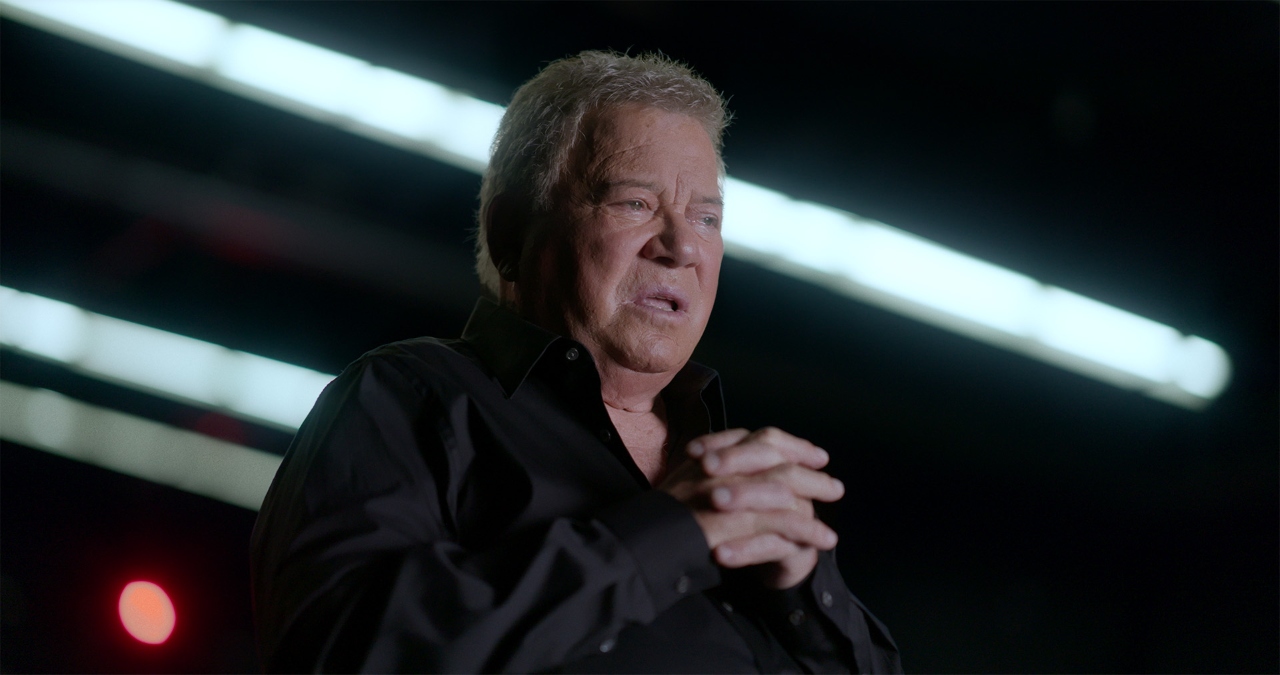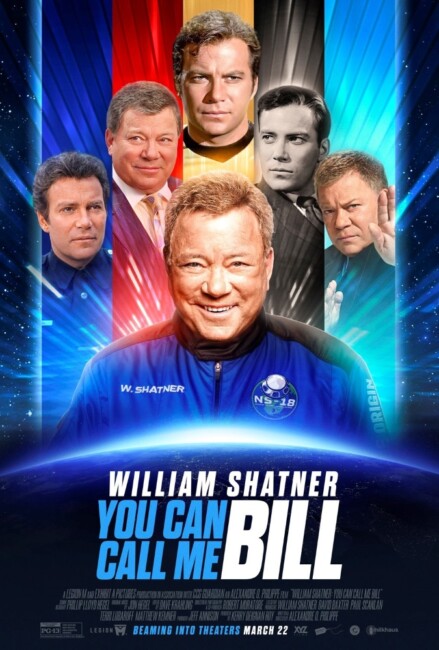USA. 2023.
Crew
Director/Screenplay – Alexandre O. Philippe, Producers – Jeff Annison & Kerry Deignan Roy, Photography – Robert Muratore, Music – Jon Hegel. Production Company – Legion M/Exhibit A Pictures/CCG Guardian Entertainment Inc..
With
William Shatner
Alexandre O. Philippe is a director who specialises in Documentaries on genre films and fandom. Philippe has previously made Earthlings: Ugly Bags of Mostly Water (2004) about Star Trek fandom; The People vs George Lucas (2011) about Star Wars fandom; The Life and Times of Paul the Psychic Octopus (2012) about the octopus that has made accurate predictions about the outcome of the World Cup; Doc of the Dead (2014) about the zombie film phenomenon; 78/52 (2017) about the making of Psycho (1960); Memory: The Origins of Alien (2019); Leap of Faith: William Friedkin on The Exorcist (2019); The Taking (2021) about the use of Monument Valley in Westerns; and Lynch/Oz (2022) on the peculiar motifs from The Wizard of Oz (1939) that run through David lynch’s work. The film comes from Legion M, a fan invested production company.
With You Can Call Me Bill, Alexandre O. Philippe interviews William Shatner, most famous to the world as Captain Kirk in Star Trek (1966-9). Shatner has played a host of other roles – my favourite of his being as Denny Crane in tv’s Boston Legal (2004-8). Clips from a number of his more obscure roles in films like The Intruder (1962), Incubus (1965), The Horror at 37,000 Feet (1973), The Devil’s Rain (1975), Impulse (1975), Kingdom of the Spiders (1977) and Airplane II: The Sequel (1982) are played throughout, as well as several of Shatner’s commercials appearances (even outtakes from his commercials) and his guest spots in The Twilight Zone (1959-63) and Mission: Impossible (1966-73), plus of course Star Trek and the Star Trek films. Shatner is a divisive figure in Star Trek fandom, as much a love him/hate him character, both iconic and also with a reputation as a bad actor and worse singer, a womaniser and with a swollen ego, none of which ever seems to have dented his popularity.
Shatner sits down on an empty soundstage with Philippe and talks about life. Occasionally he discusses his movies and tv roles but mostly talks about life. It was the eve of Shatner receiving a life achievement award. He opines that he doesn’t think he has led a particularly remarkable life or done much other than what any other actor would have done. He claims his greatest achievement is to actually have taken care of his inner child.
Mostly You Can Call Me Bill is Shatner at age 91 reflecting on the meaning of it all. This involves much talk about the universe, about the mystic communion he feels with horses and especially his reverence of nature – we even see him reciting poems about wanting to be a redwood tree and later talking of his plan to have his ashes buried and a tree planted on top. Shatner talks at length about his acting art – there is a whole section where he tells us about the importance of comedy timing. There is another whole section about loneliness and how he has often gone to some lengths to avoid this but still counts himself as a solitary person.

There is surprisingly less to the documentary where Shatner reflects on his roles than I expected there would be at the outset. He refers to Captain Kirk as someone who embraced his child within and was feeling constant wonder at the universe but never much more than that. The one scene he does talk about is how he wishes that he could have had a retake of his death in Star Trek: Generations (1994) and be able to show more wonderment on Kirk’s part as he greeted what was coming. It is also a documentary that is soft on Shatner in the sense that it avoids many of the hot button issues in his life – the suicide of his wife Nerine Kidd, the long-standing antipathy towards him of many of his Star Trek co-stars and their accusations of his self-aggrandizement, his Twitter controversy over support for controversial autism charities.
Philippe asks Shatner to define the term Shatnerism, which he appears to be ignorant about. To fill us in, Philippe gives us a clip of Bruce Campbell conducting a parody of Shatner’s distinctive dramatic delivery with its emphatic pauses. There is a whole section devoted to the Geoge Lucas tribute where Shatner appeared on stage pretending that he was at a Star Trek convention. The film was clearly shot after Shatner’s trip into orbit aboard Jeff Bezos’s Blue Origin flight in 2021, another experience Shatner keeps referring to in terms of wonderment. (These scenes are contrasted to his telling of watching the Moon Landing on a tiny six-inch tv set in the back of a truck and how he felt some small instrumental part in adding to that with a journey to the Kennedy Space Center). We also get footage of Shatner accompanied by The National Symphony Orchestra as he gives a spoken word reading of the poem So Fragile, So Blue written about the journey.
Do we really know more about William Shatner or have more of an insight into who he is as a person after watching You Can Call Me Bill than before? Disappointingly, no. He talks a little about his parents, we learn how he wants to be buried (his ashes in the ground and a tree on top). His musings on nature, life, acting, comedy timing amount to surprisingly little, certainly little that feels insightful. It makes for the weakest of Alexandre O. Philippe’s films to date.
Trailer here


